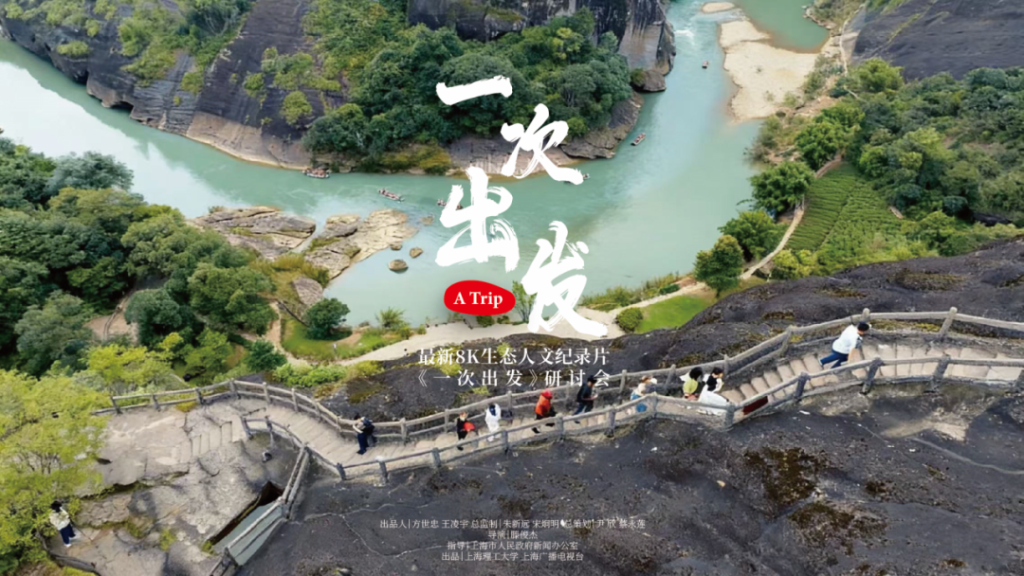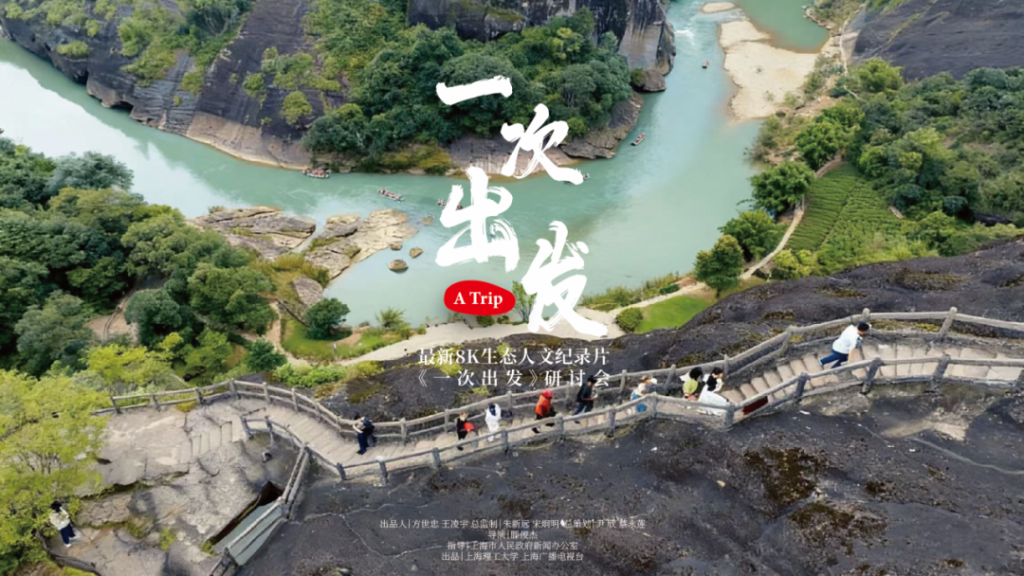
Ten years ago, Japanese director Ryo Takeuchi filmed a large-scale documentary "Journey to Heaven and Earth on the Yangtze River" for NHK, recording the customs, customs and natural scenery along the 6,300-kilometer-long Yangtze River. In the process, he fell deeply in love with China and decided to move to China.
In 2021, Ryo Takeuchi set off again on the Yangtze River journey and filmed the documentary "Goodbye Yangtze River". In 2022, this documentary was first launched on major video websites as a 9-episode series. So far, the Douban score is as high as 9.3. In the movie version, Takeuchi Ryo refined new ideas and thematic clues to show China's ten years of changes through a river.
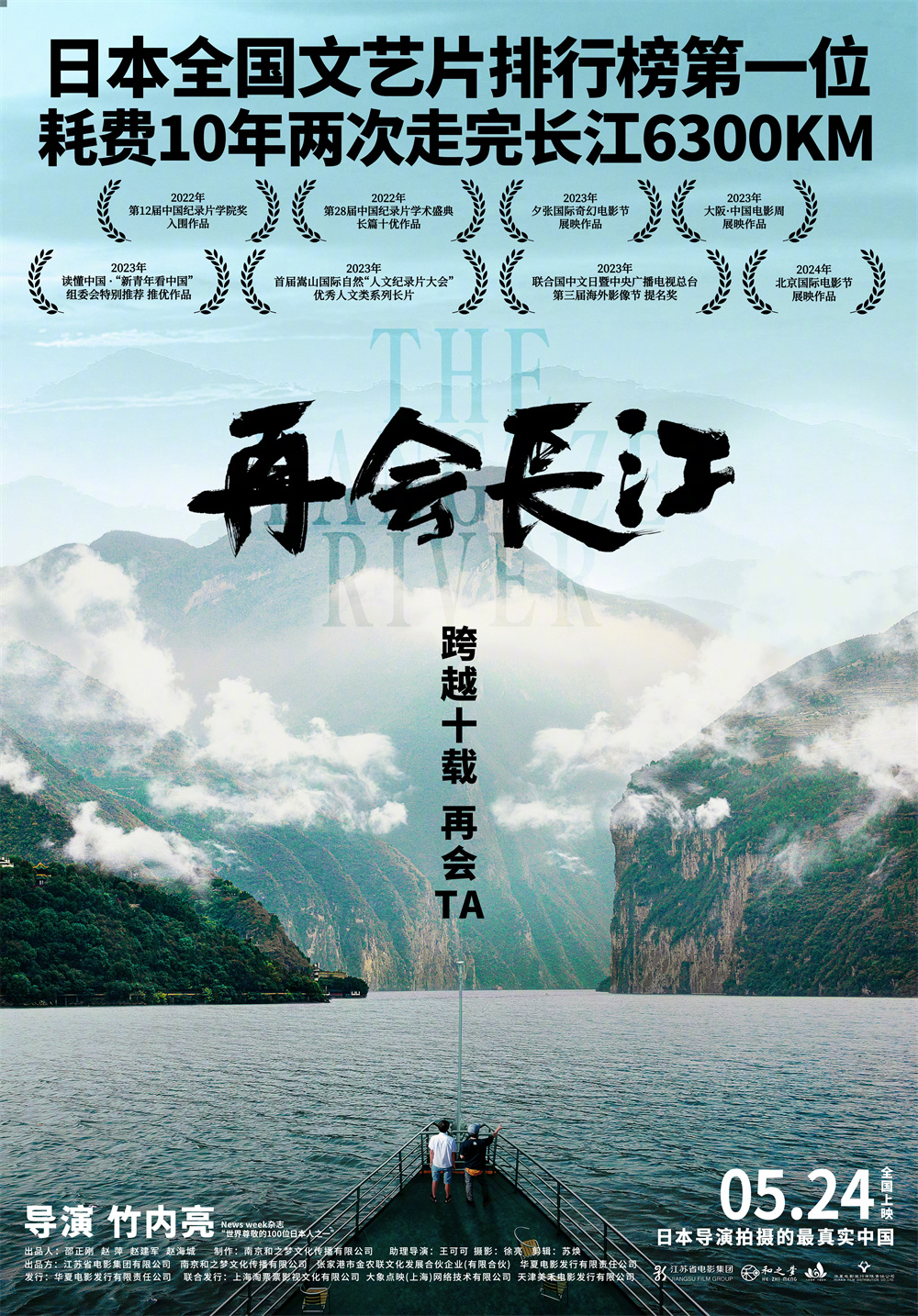
"Goodbye Yangtze River" poster
"Farewell to the Yangtze River" will be released nationwide on May 24, and the film will hold a grand premiere in Shanghai on May 22. As the mouth of the Yangtze River, Shanghai is not only the place where Takeuchi's film begins, but also an important place that changed the life direction of Tsim, an important character in the film. At the premiere, Takeuchi Ryo and Tsim also made a surprise appearance to share with the audience the stories behind the scenes of the film.
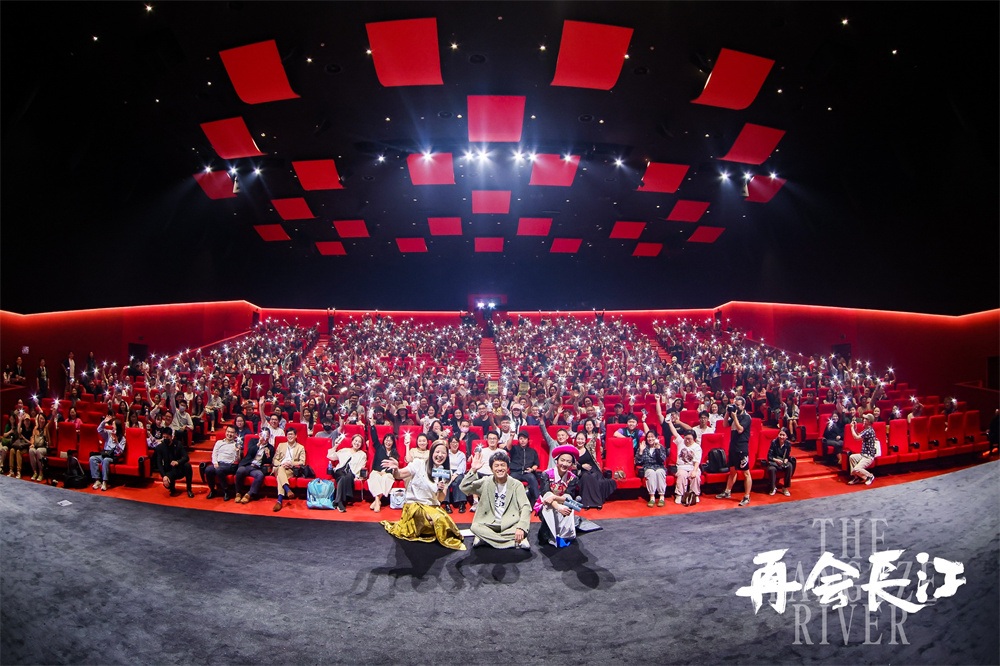
The main creative staff took photos with the audience
When "Farewell to the Yangtze River" was released in Japan in April this year, it not only topped the list of literary films, but also attracted Japanese movie fans to enter the theater with warm images that transcended language and cultural differences, and learned about a more modern and authentic China through film works. , not only promoted cultural exchanges between China and Japan, but also deepened the mutual understanding and friendship between the two peoples. It has important cultural influence and significance, and has been praised and affirmed by the Chinese Ministry of Foreign Affairs.
From "Chasing Stars" to "Friends", Reunion with the Yangtze River Witnesses China's Changes
"Farewell to the Yangtze River" uses Ryo Takeuchi's keen lens and delicate narrative to truly record the natural scenery and cultural landscape along the Yangtze River, showing the great changes in Chinese society and the people's fighting spirit. The film not only shows the process of personal growth and dream realization, but also reflects China's rapid economic, cultural and environmental development.
Talking about the creative background and ideas of the movie version of "Farewell to the Yangtze River", Takeuchi Ryo said: "The movie version starts from Shanghai to the source, and the story line goes against the current. The theme is to show China's changes in ten years through a river, so many ten years are used. The film version is not only different in story lines and scenes, but also shows the great changes in China in the past ten years by comparing the materials before and after ten years."
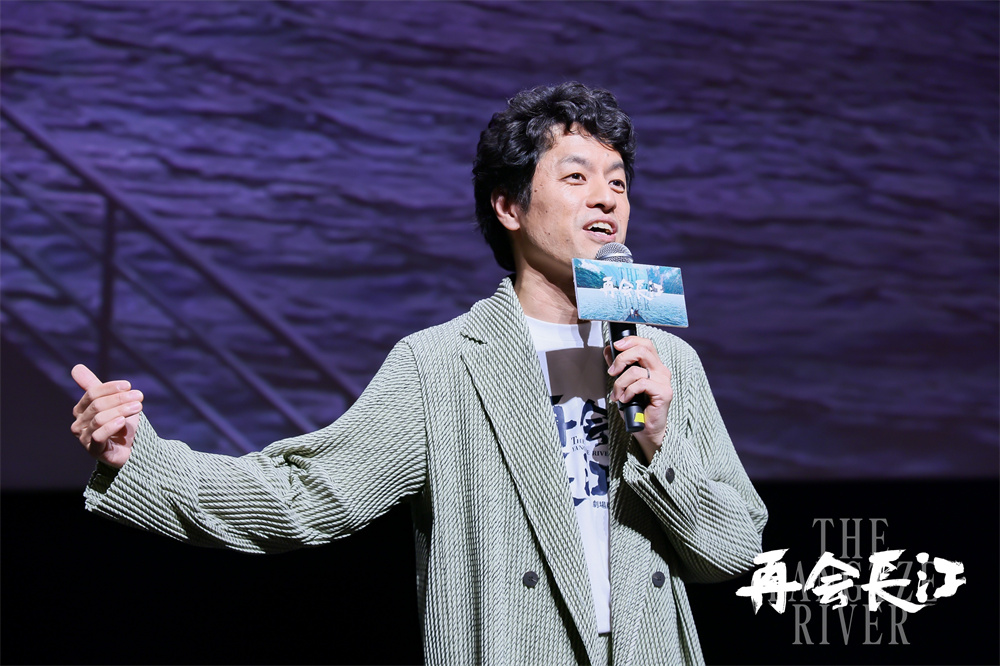
Director Ryo Takeuchi
In fact, it was decided from the very beginning that this project would be presented in a movie version. Takeuchi Ryo particularly emphasized the creative ideas he used during the filming process: "I originally wanted to make a movie, so when I was shooting, I also shot it based on the premise of making a movie. The picture quality and composition were all based on the movie. "These requirements have brought "Goodbye to the Yangtze River" to a higher artistic level both visually and narratively. But at the same time, he also knew that documentaries were destined to be a niche category in the film market. Therefore, he first produced the drama version, established the brand through online communication, and hoped to reach a wider audience through word-of-mouth accumulation and diffusion.
As the Japanese documentary director most familiar to Chinese audiences, Ryo Takeuchi has rich documentary creation experience both in Japan and abroad. He started his career at Japan's NHK TV station and participated in the shooting of many major documentaries, such as "Journey to the Yangtze River" and "World Heritage". These works not only demonstrate his outstanding photographic skills and narrative abilities, but also reflect his deep concern for nature and culture.
In an interview with the media, Takeuchi Ryo said that he had photographed many rivers around the world in the past, "but there has never been a river with an estuary like the Yangtze River, which is so big that even a drone cannot photograph it completely."
Takeuchi Ryo loved the Yangtze River when he was still in Japan. He was full of yearning for the Yangtze River because he was familiar with the stories of the Three Kingdoms, the Battle of Red Cliff and other allusions. Photographing the Yangtze River for NHK ten years ago was like a star-chasing journey for him. "The Yangtze River is my idol, and I admire it very much." It was also this sense of distant recording, coupled with the language barrier at the time, " What I saw at that time was more of the superficial things, its beauty, its splendor.”
In 2013, Takeuchi moved to Nanjing, China, and truly became a person living by the Yangtze River. Over the years, he has learned Chinese and created more documentaries that delve into China's humanities and society. “My works are my life,” is how Takeuchi describes his creations in China over the years. In 2020, the documentary about Wuhan went out of the circle, making him a well-known Japanese director among Chinese audiences, and also laid the foundation for his reunion with the Yangtze River. "Photographing the Yangtze River is a huge project. In the past, because of NHK, others would allow you to shoot, but later it was because everyone got to know Ryo Takeuchi that I was able to have the opportunity to see the Yangtze River again."
Ten years ago when he was creating "Journey to Heaven and Earth on the Yangtze River", he was deeply regretful because he failed to capture "the first drop of water at the source of the Yangtze River". After moving to Nanjing, he developed a deep affection for the land and its people. He was determined to make up for this regret and embarked on a journey along the Yangtze River again. This was also his motivation for creating this film.
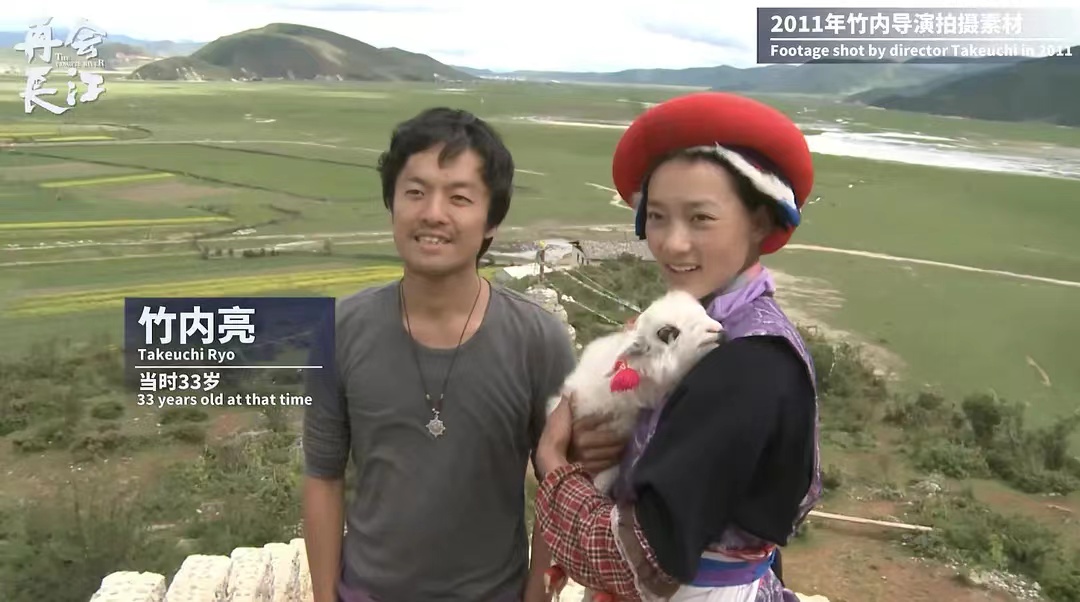
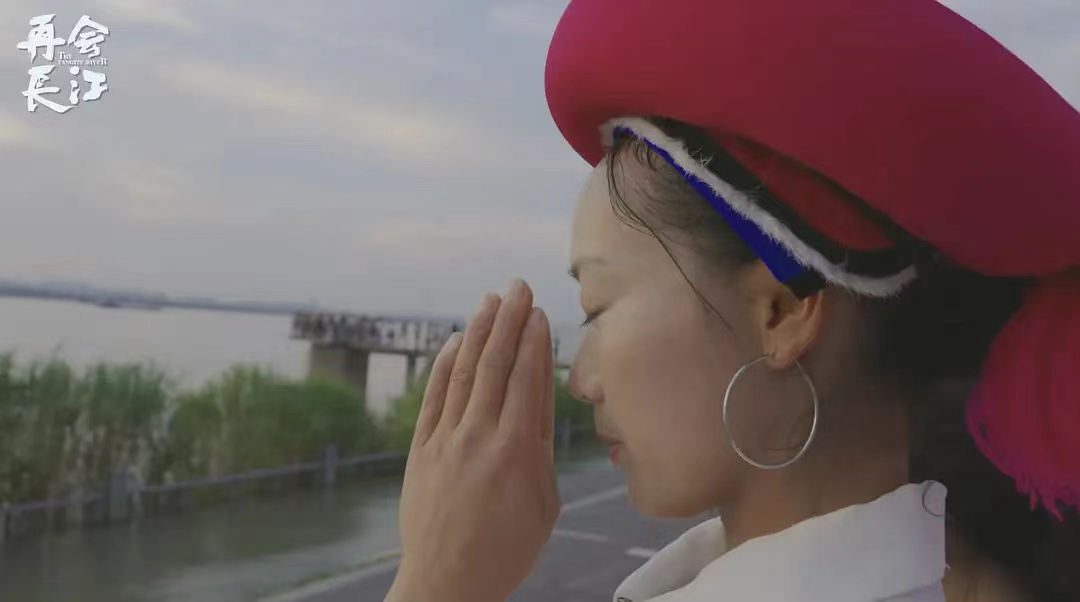
2011, behind-the-scenes of Ryo Takeuchi's shooting.
Compared with the last exploration and discovery from the perspective of strangers, this time "Goodbye Yangtze River" is more like an "Old Friends". By searching for the subjects of the past, starting from specific characters and telling the story through a personal perspective The story of a small person in the context of a big era.
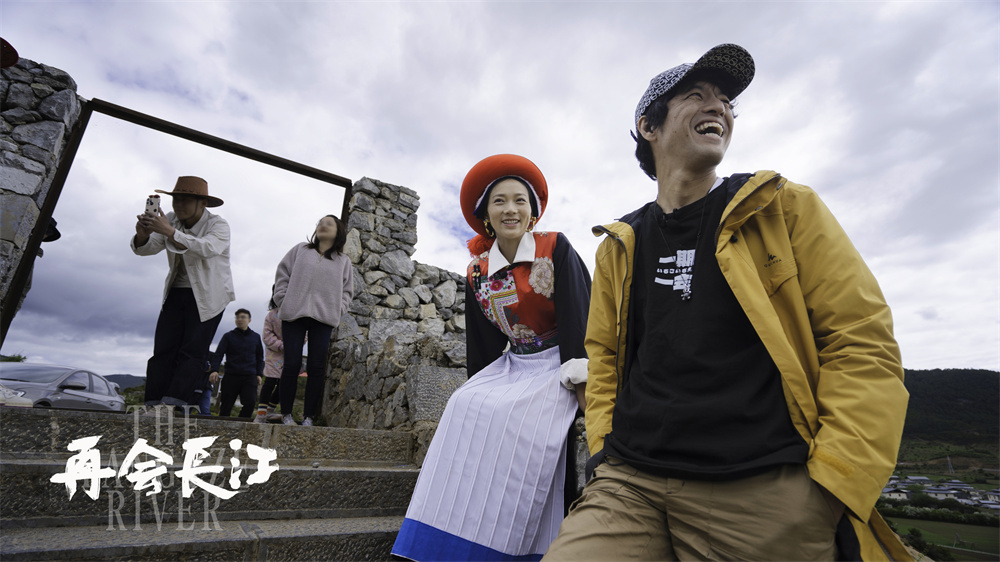
Stills from "Goodbye Yangtze River"
By comparing the material before and after ten years, we can see that China's huge changes in this decade are not only reflected in the improvement of infrastructure and economic development, but also in the changes in people's lifestyles and ideas.
During the interaction with the audience, when asked about the different feelings of the two trips to the Yangtze River, Takeuchi thought for a moment and gave a two-word answer - "great changes". He explained with deep emotion, "China is like a perpetual motion machine, always running forward at full speed. In 10 years, great changes have taken place here. The environment has become more environmentally friendly and clean, and the residences have become more spacious and elegant. Life has become richer and happier, and the most important thing is that people's thoughts have changed and they have become more open and tolerant. This change particularly attracts me. I like China's dynamic changes very much, and I hope that through the documentary films I shot, more people can learn about it. Friends know China, and then come to China to see and experience the development of modern China.”
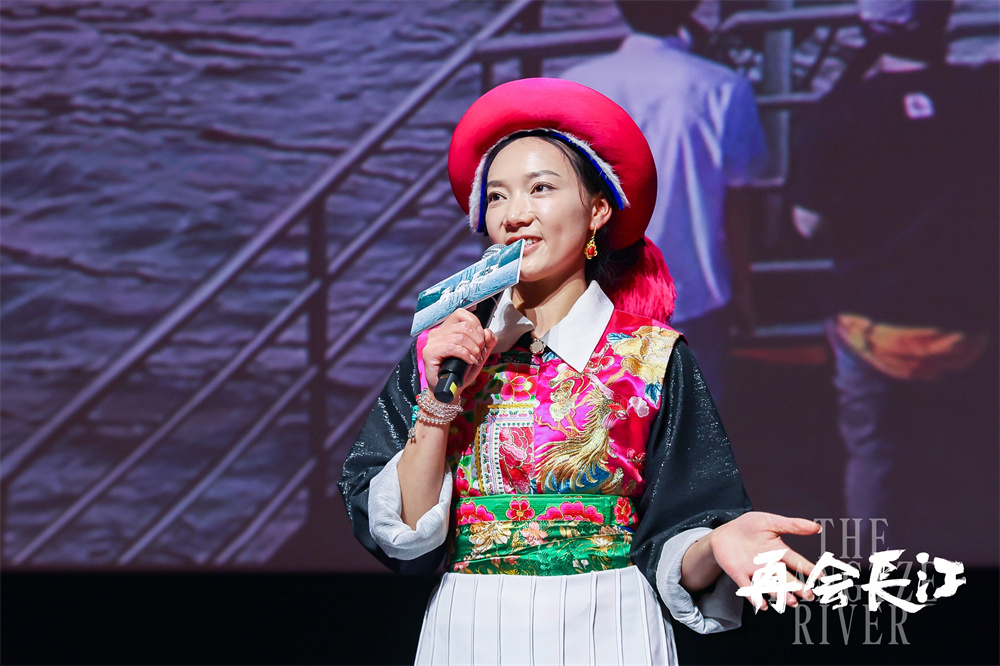
Tsim
The little girl whose life was changed by Shanghai realized her life's dream
At the premiere, Tsim, the "popular king" in Takeuchi's sequins, made a surprise appearance. His simple and smart performance was just like the innocence and purity in the film. Her story not only reflects personal growth, but is also a true epitome of China's remote areas gradually moving toward openness and diversity.
As one of the protagonists of the documentary, Zimu shared at the premiere her experience of coming to Shanghai for the first time ten years ago and the impact this experience had on her life. Zimu recalled: "The trip to Shanghai allowed me to see more different worlds and broadened my horizons. Without that trip to Shanghai, I might not have the homestay I have now."
In the interview, Zimu said that after returning to his hometown, he learned many new skills through various channels, such as catering service, computer operation, etc. She went from a little girl who "couldn't even fold a quilt" to now personally designing and overseeing every detail of the B&B. "If I hadn't gone to Shanghai, I wouldn't have even known that there could be a separate bathroom in the room." Not only that, she started her dream by taking out a loan of millions of yuan. "These are things that if you hadn't opened your eyes in a big city, you would have never had a separate bathroom in the room before." It’s something we wouldn’t even dare to think about in our conservative mindset.”
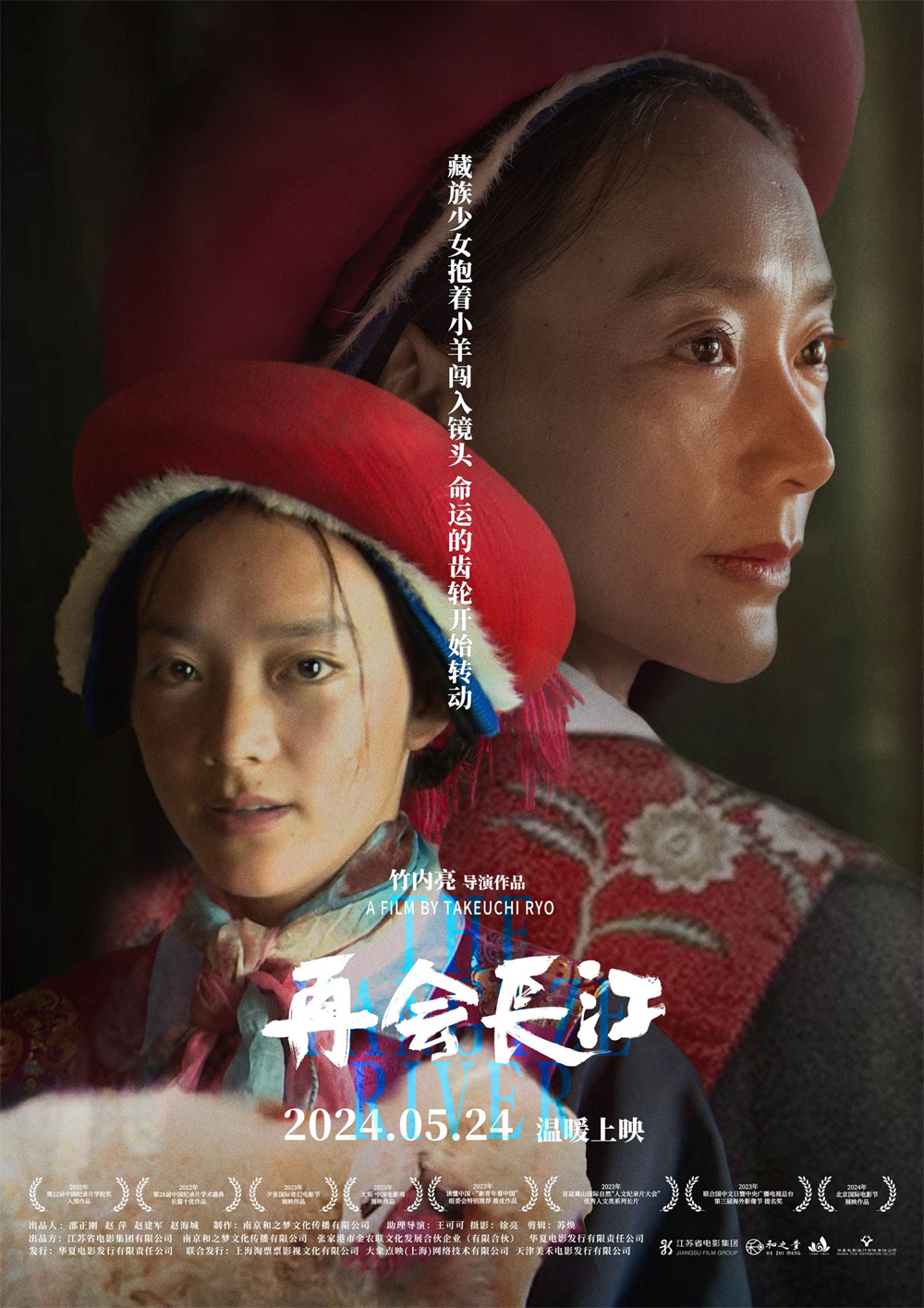
"Farewell to the Yangtze River" character poster
When asked by the audience about his feelings for his hometown after watching World of Flowers, Cimu said frankly, "It was the first time I saw such a big high-rise building, the first time I flew on a plane, and the first time I celebrated my birthday in Shanghai. Many firsts, these experiences broadened my horizons. When I returned to Shangri-La, I felt that there was a huge gap between my hometown and Shanghai, which made me cherish and love my hometown even more. I hope that one day my hometown will be mys. It can be as prosperous as Shanghai and have more development opportunities."
In the last Easter egg of the film, Tsim reunited with his long-cherished "Brother Dongdong" (Japanese actor and host Abe Riki) at a bed and breakfast in Shangri-La. At the premiere, Ryo Takeuchi asked the audience a question that all viewers were concerned about - how it felt when seeing Dongdong again. Zimu playfully turned on the "complaining and complaining" mode, joking that he was dissatisfied with Takeuchi Ryo's arrangements at that time, and jokingly said that he "hated him", "I have thought about the scene of meeting Brother Dong many times, but I never expected that it would be Such a scene. I was really surprised at the time and had no preparation. You knew that he was so important and I had wanted to meet him for more than 10 years, so why couldn’t you tell me a little bit about him?” The atmosphere was very lively.
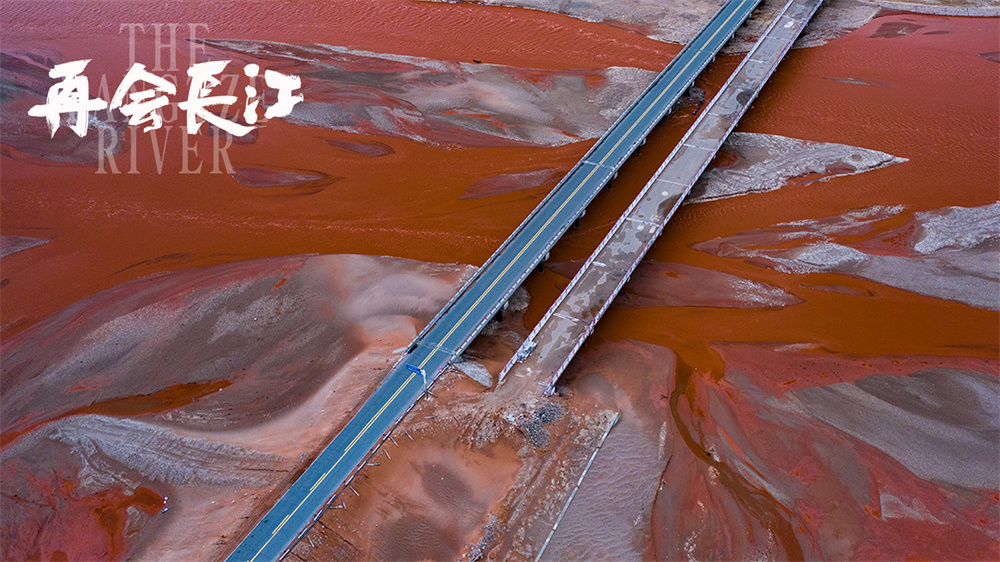
chumar river
Photography is a kind of "interference", emotions are more important than concepts
In Takeuchi Ryo's documentary creation, the balance between true records and director's intervention has become an important manifestation of his ethical concepts. Ten years ago, Takeuchi Ryo brought Cimu from Shangri-La to Shanghai for the first time, opening a window to a wider world for her innocent heart; ten years later, "Farewell to the Yangtze River" made her famous on the Internet again, and the B&B business also changed. Gotta be hot. This way of deeply intervening in the lives of the subjects makes Takeuchi's works not only simple records, but also active participation in the fate of the characters.
At the premiere of "Farewell to the Yangtze River", documentary director Fan Lixin had an in-depth exchange with Ryo Takeuchi. Fan Lixin expressed high recognition and appreciation for Takeuchi Ryo's creative concept. He pointed out that Takeuchi's works show the changes of individuals and society through the weight of time. This creative method is very advanced and powerful. Fan Lixin believes that as a professional documentary director, integrating yourself into real-life stories "requires a lot of courage, and going deep into the lives of the subjects is a very warm expression." Through in-depth intervention in the lives of the characters, the most authentic moments are captured Emotions and changes, this is the core value of documentary.
Takeuchi believes that photography itself has interfered with the lives of the subjects, so instead of trying to remain a calm spectator, it is better to intervene deeply and capture more real and moving moments.
In an interview with The Paper reporter, Takeuchi Ryo mentioned: "I don't believe there is a record of completely calmly watching. The relationship between people itself interferes with each other, and this interference can bring more problems. Real." He believes that the director's appearance and the presence of team members can enhance the authenticity of the film, because the complete neglect of the existence of the filming team is deliberate.
Ryo Takeuchi, who is now hailed by netizens as the "eating maniac" and "chatting genius", likes these fans' nicknames for him very much, and responded, "Actually, I don't eat every meal. I do it more recently. In the past, I I’ll also invite people to dinner.”
Takeuchi Ryo talked about the reason why he likes to shoot documentaries, "because of the real expressions and the moments when the story touches people." "For example, Tsim misses Dongdong and cries. This kind of emotion cannot be performed." Takeuchi Ryo believes that the value of a documentary lies in its authenticity. In today's era of rampant false information, true records are particularly precious.
These concepts were used throughout the filming process of "Goodbye Yangtze River", making this documentary not only show the magnificent scenery along the Yangtze River, but also deeply reflect the real life and emotional stories of residents along the river. Takeuchi also shared his future plans at the premiere - he hopes to continue to record and show China's social changes and people's life stories through more documentary works.
